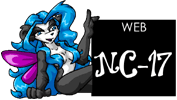Public Building Suggested Enforcement Practices
From Tapestries MUCK
Revision as of 19:25, 27 March 2007 by WhiteWizard (Talk | contribs)
These are some suggested enforcement practices as written up by JadeWizard. While not required they are considered a good way to interact with your users. If you have other practices, you should write them up clearly for both your staff and your patrons, and follow them.
- Warn first, act next time. Depending upon the degree of the violation, the attitude of the violator, and your own philosophy, it is almost always better to first warn the violator and take no other action at that time. It is recommended that only after a given number of warnings are recorded should you "take action" against the violator. This allows for bad days, ignorance of your rules, innocent mistakes, apologies, and other things that are important to quick conflict resolution and on-going good will. It is suggested that you choose whether your area is a two-, three-, or four-strikes "and you're out" sort of zone. Do not share with your visiting public the details of this choice, but do make sure your staff is all on the same page.
- Do not respond to drama with drama. Do not reprimand in public. Adding the humiliation of public reprimand to the circumstances is almost never justified. Yes, the person violating your policies is in the wrong, but should not be put into a position where he or she will need to "save face." Saving face is by far the most common cause of escalation. Warnings, et al, should be given one-on-one between the staff member and the target, in whispers or pages. No indication of the warning should be in the general public's awareness, if possible. Keep it small. Remember that calling someone out in public to "have a private talk" is just as public as having the talk in front of everyone. Don't worry about how "merciful" this seems to the asshole who just broke your rules; it's not altruism to do things this way; it simply prevents emotional escalation and more disruption. This being said, if the person has been warned in private multiple times, does not improve, and is finally kicked or banned, generally informing your zone community will probably be constructive.
- Quote the exact rule or policy. If you find yourself on the verge of reprimanding, warning, or banning a person, first check the rules (the zone rules or the MUCK policies) and locate the exact rule(s) the person has violated. Quote this rule at them! It was posted, they read it, they agreed to abide. If you can't find anything in the posted rules that allows you to make the point you want to make, a couple of things might be going on. Either the zone rules should cover these circumstances but for some reason don't, or you are personally offended or upset by the person and want them gone, all the damned rules aside. Adopting the practice of always quoting the exact rule or policy to the violator makes sure your rules are robust (you will notice the holes and fill them) and helps you stay honest with yourself about your motivation.
- Report it to the wizards. Report any significant administrative activities and any significant troublemakers to the wizards so that MUCK-wide records can be kept up-to-date. In this way, players who "lilypad hop" from zone to zone to cause trouble can be spotted. A player's track record distinguishes a temporary "bad day" from a deliberate and on-going belligerent attitude. Zone Administrators should keep their own records, and anything that feels "serious" (use your own judgment) should be shared with the wizards for more global record keeping. This reporting creates a community of effort around policy enforcement.

